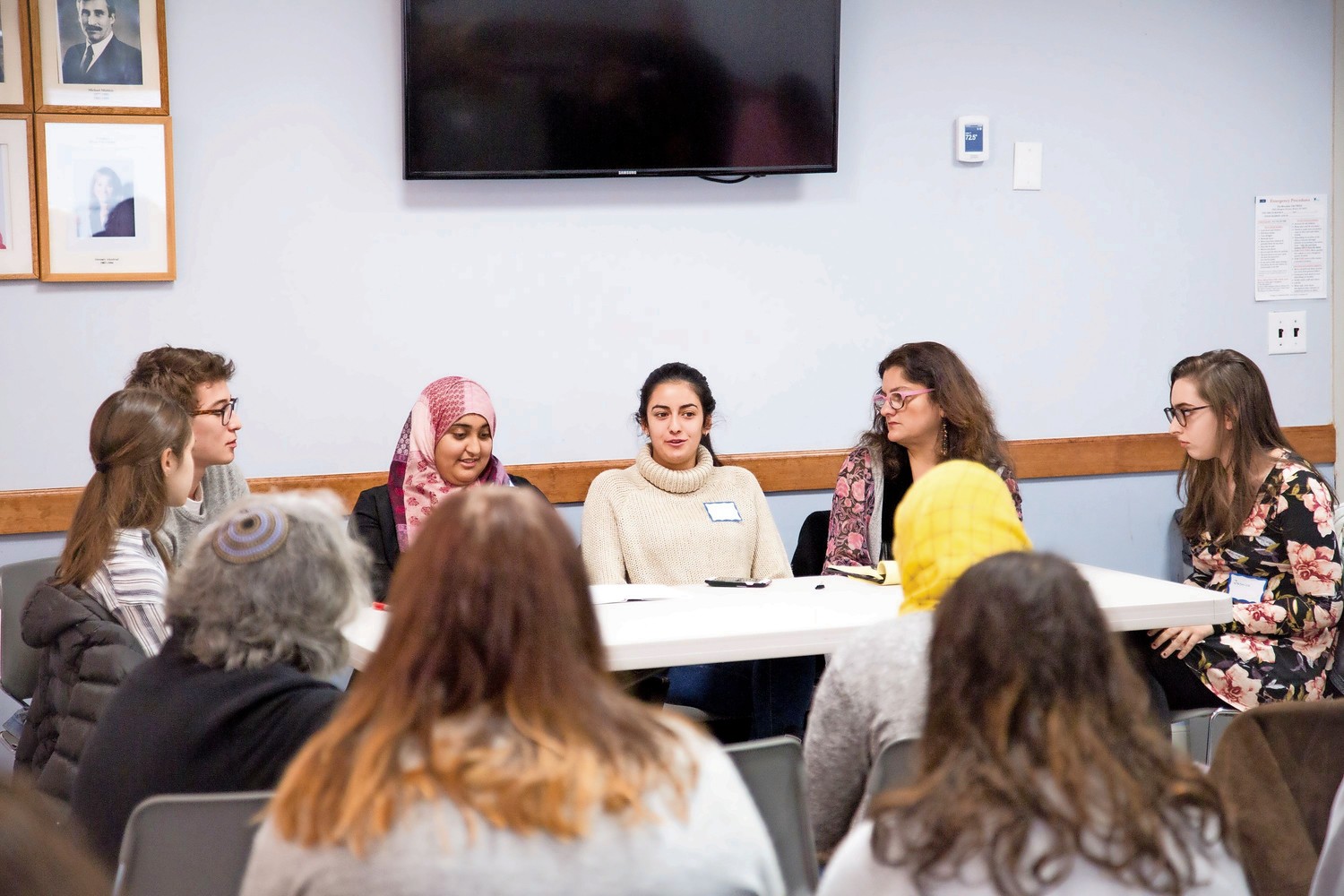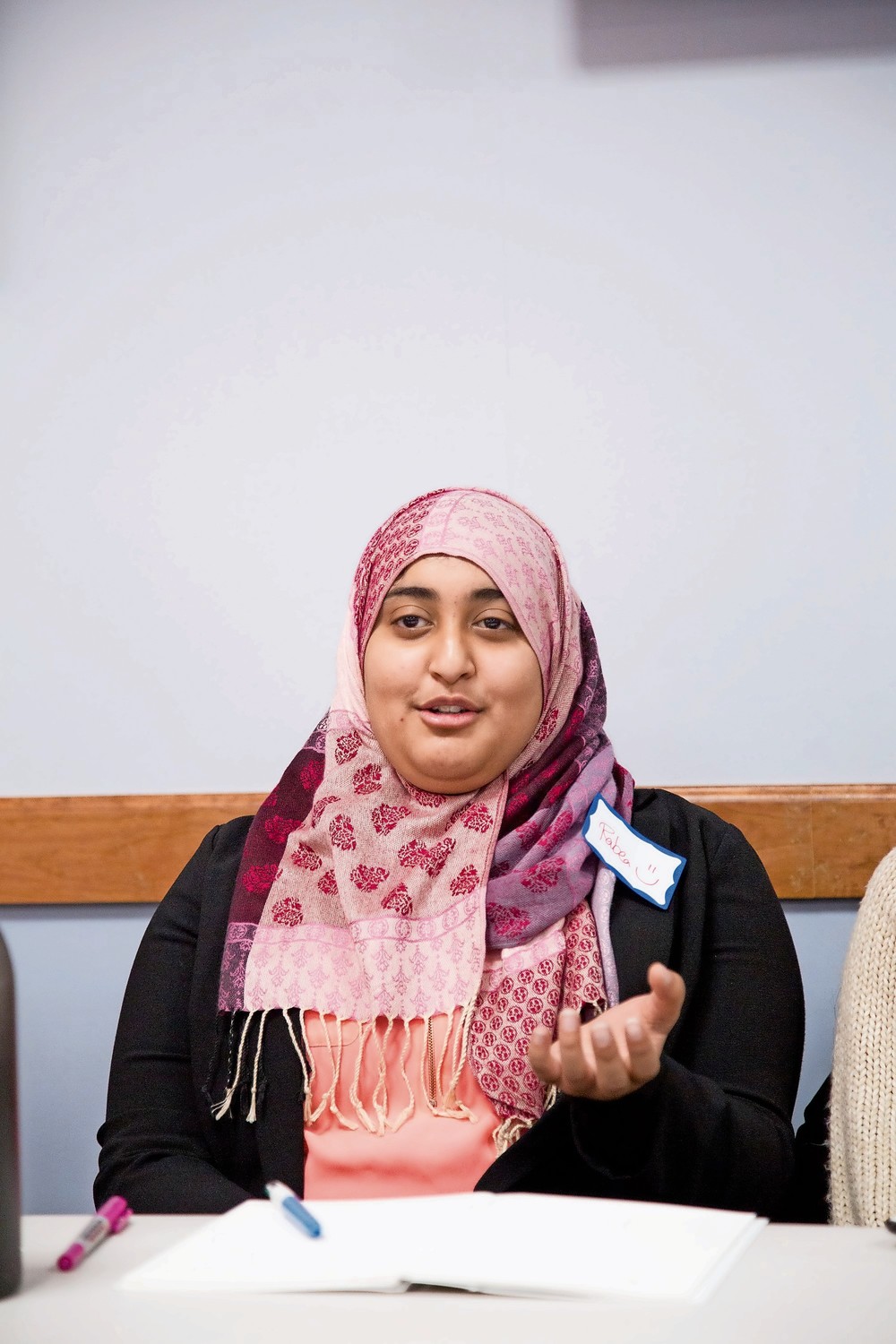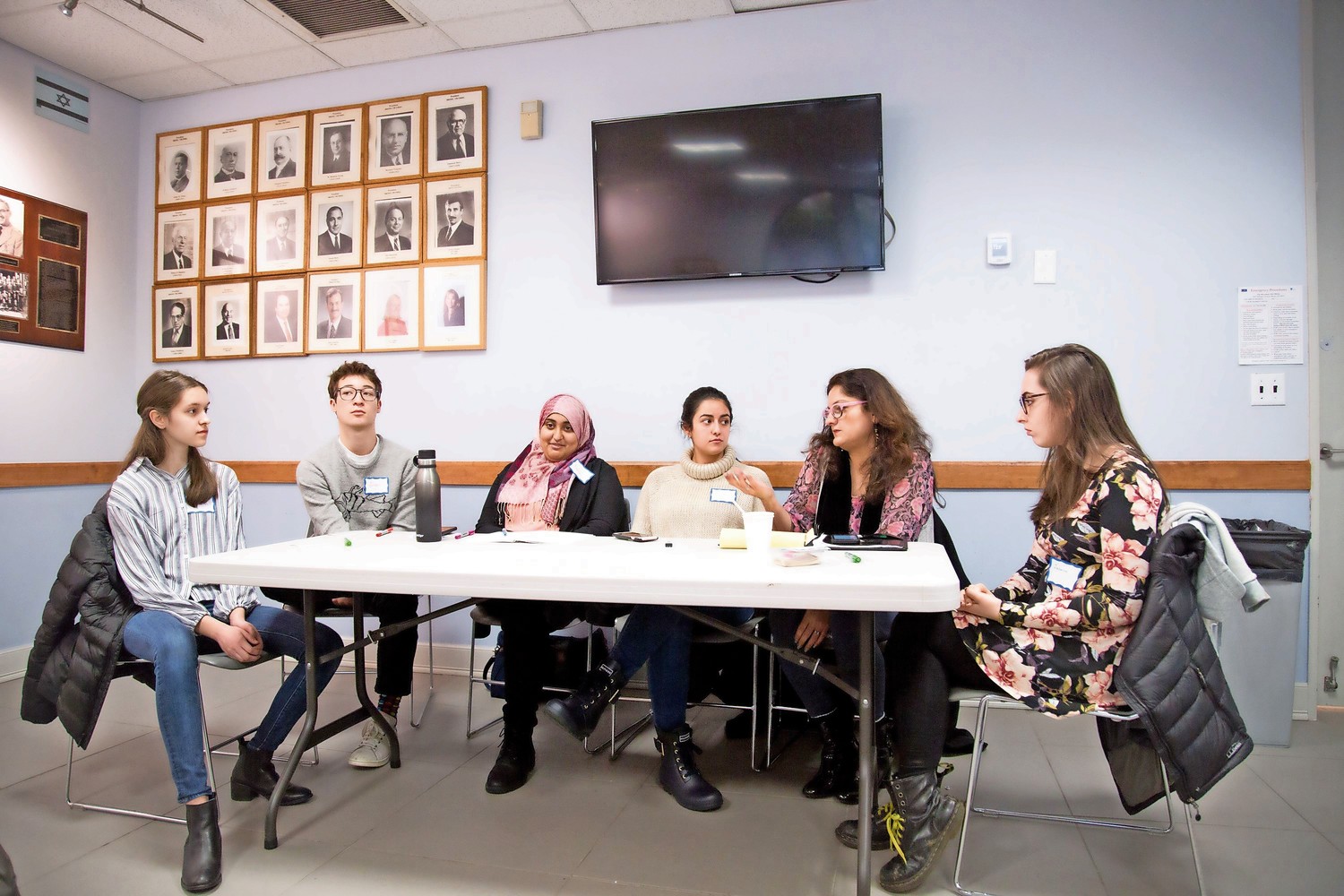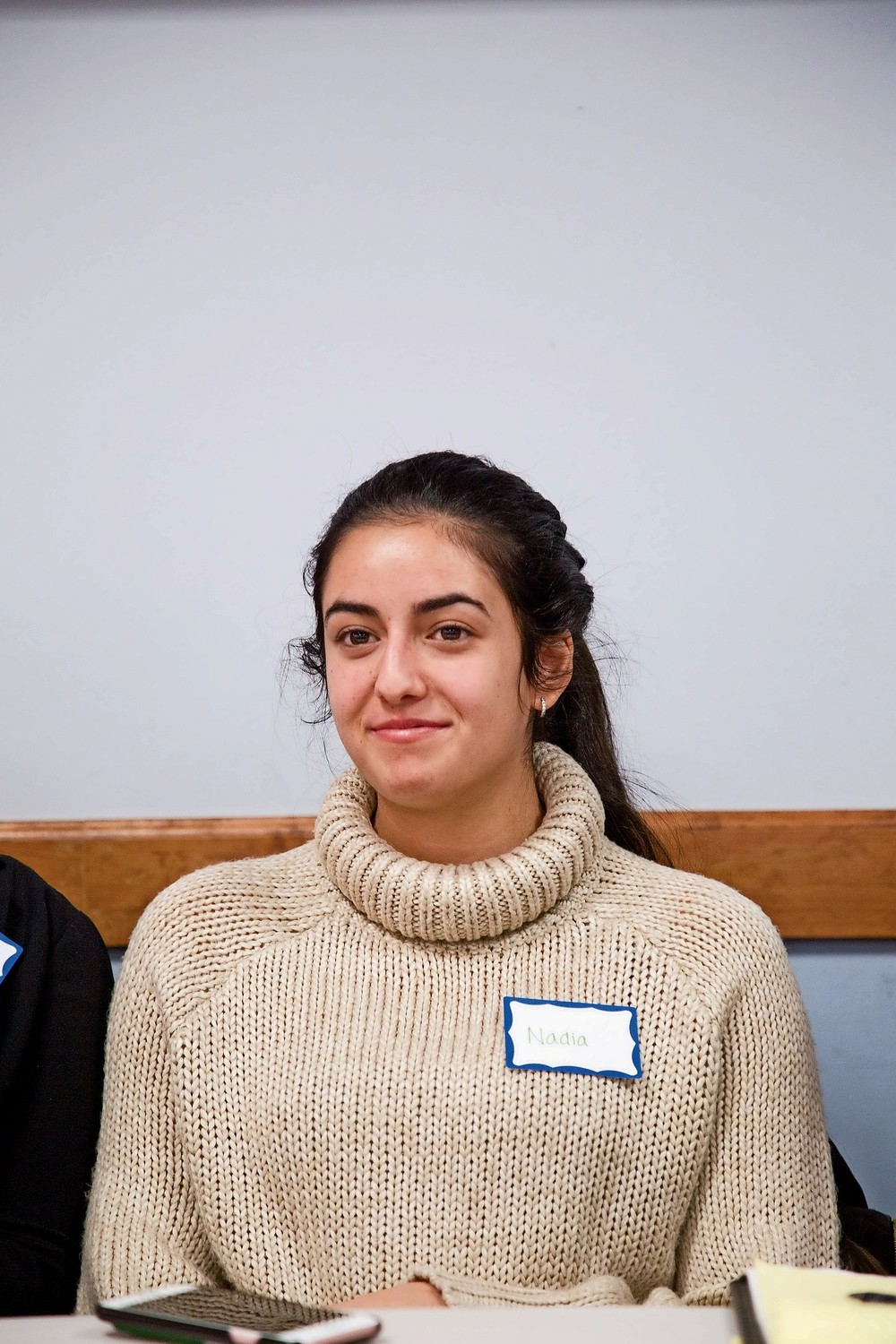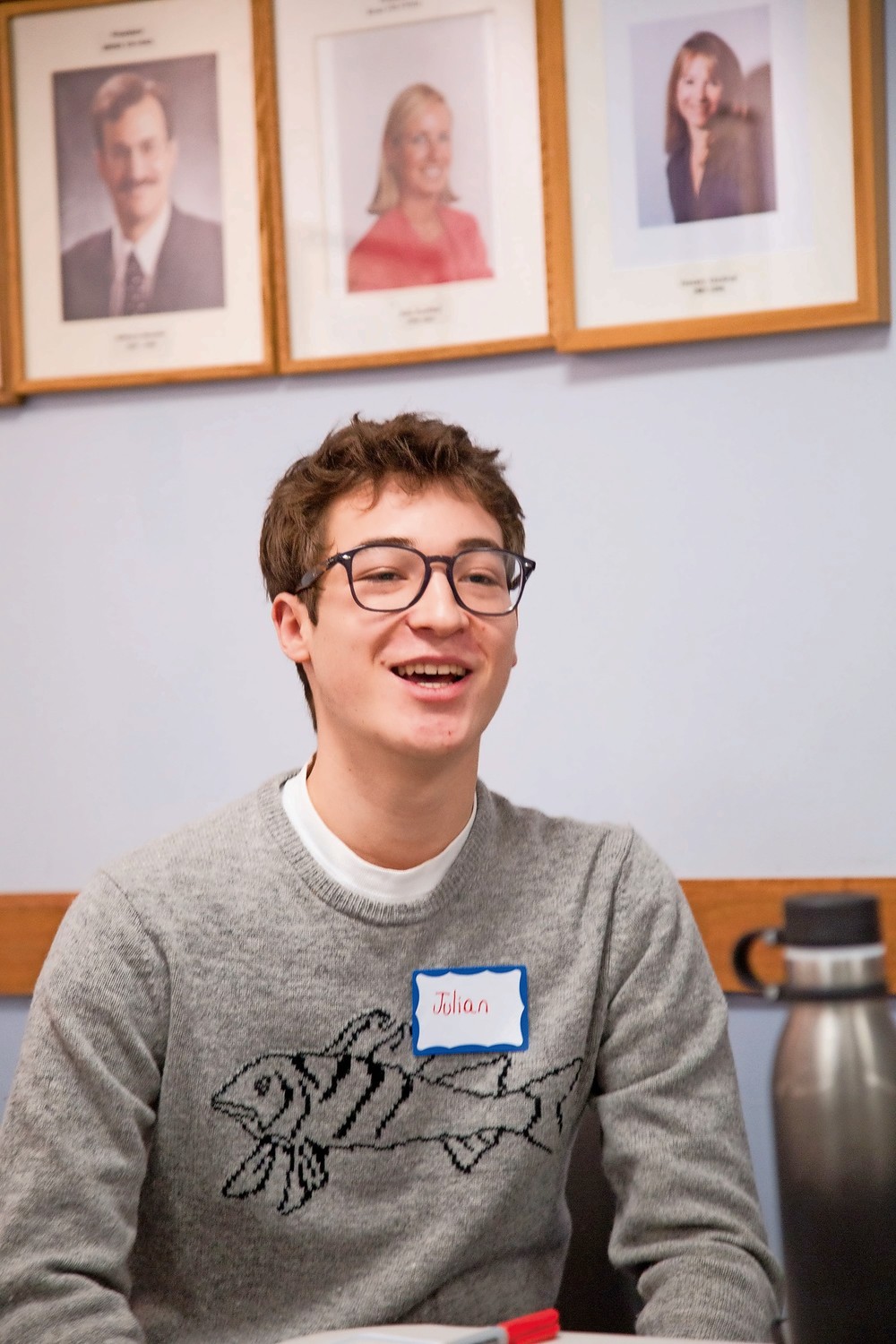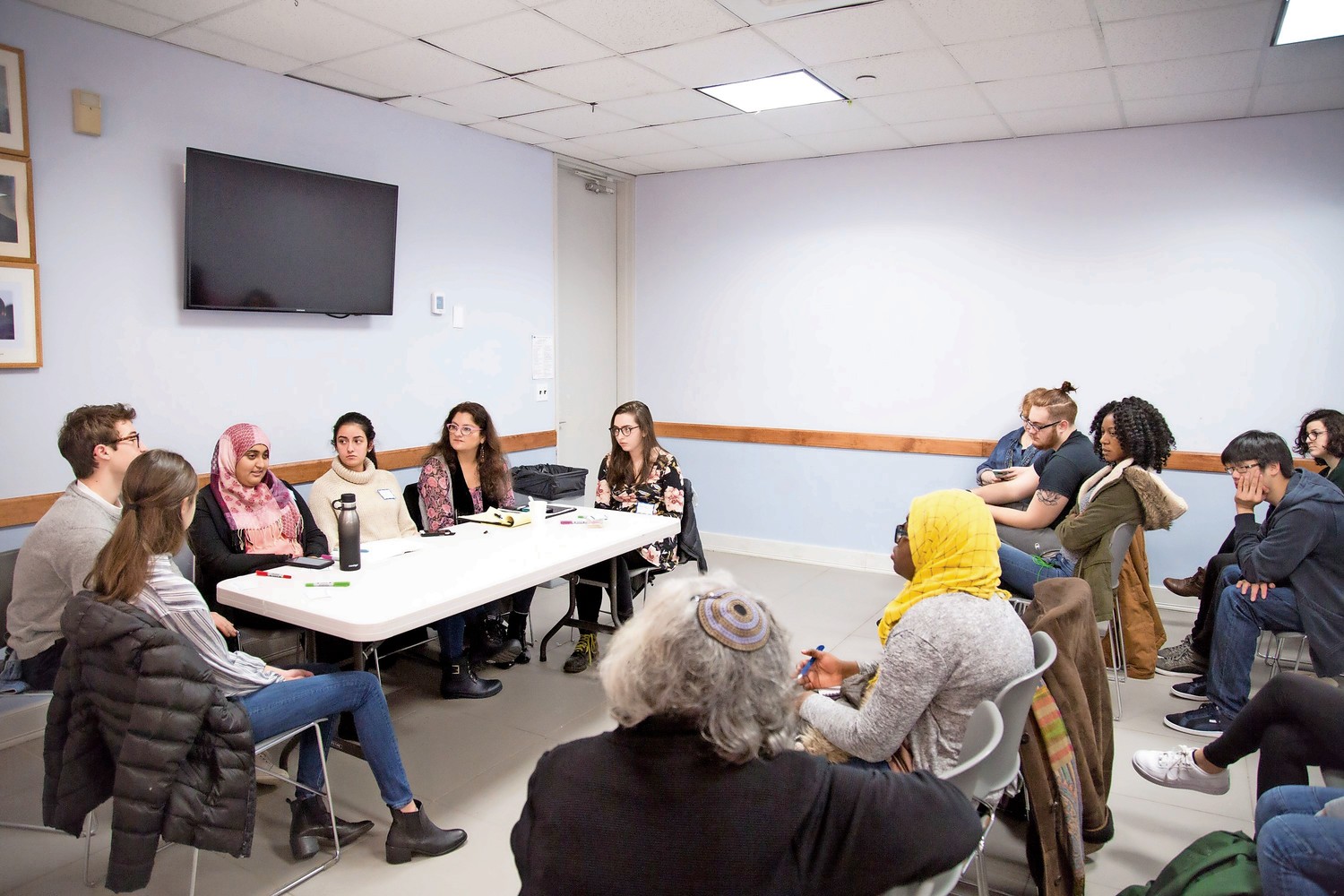Teens of diverse religions bridge gap to tolerance
These young people find out the more they think they’re different, the more they’re actually the same.
Rabea Ali never dreamed a road trip to Connecticut would end in four bruised ribs, a knife through the hand, and a ticket to the hospital.
But that happened to the 18-year-old Manhattan College student when two men she saw in a diner took note of her hijab, made some remarks about terrorism, and beat Ali severely when she chose to defend herself.
Sharing her story now, even at an interfaith teen panel Feb. 25 at The Riverdale Y, still isn’t easy.
“I shouldn’t have to say something like this to change someone’s mind, but it felt right to say it in that moment,” Ali said.
“Stories like this need to be told to flip a switch in people’s minds that this isn’t just happening to people you hear about, but it’s happening to people you know.”
A panel of six students from various walks of faith took The Y stage to discuss what made them different, but also what makes them the same.
Young people tend to be caught in the crossfire between faiths, said Julian Reich, a sophomore at the High School of American Studies. While he doesn’t describe himself as extremely devout, Reich has experienced his own level of prejudice as a Jewish teen.
At a summer job, for example, most of Reich’s co-workers were Muslim, and he was surprised by the stereotypical views they shared when it came to Jews.
Ideas like Jews being greedy or crooked permeated their beliefs, while experiencing fear that because some people attribute Islam to terrorism, they were not as welcome here in the country.
“We talked about it and I got to see their side of things, but I explained that not all Jewish people are like that,” Reich said. “I have friends whose parents just don’t like Jewish people.”
Like Reich, Nadia Itani believes in the power of dialogue.
“The only way to get rid of the conflict is to talk about it,” the Manhattan College freshman said. “By setting up smaller discussions and getting more conversations started, we can affect more people on a universal level.”
As president of the Muslim Students Association, Ali wanted to be a part of the panel to show Muslims are indeed apart of the community. Ali saw this event as an opportunity to break barriers between different religions, and even some of the differences within a single religion. Itani, for example, is a Muslim student who does not wear a hijab.
Yet, Itani and her Lebanese family have taken note of the stares they’ve received over the years. Itani also notices the way she’s treated by some people once they learn she’s Muslim.
“Unless I outwardly inform others that I am Muslim, they do not see the difference,” Itani said.
“But when I do, sometimes people take a step back.”
Sometimes when Itani’s parents see how Islam is portrayed on television, they remind their children “it does not matter what they say. You can change people’s opinions.”
Itani achieves that by being the best person she can be. Although perfection is impossible when bearing the entire weight of how her faith is perceived, it’s a burden many like her have to shoulder. Putting that best foot forward, Itani strives to make life better not only for her family, but also for others who may believe they’re not good enough.
“They’re all on different journeys, but it’s important to bring this up,” said Rabbi Linda Shriner-Cahn of Congregation Tehillah, one of the organizers of the event. “There’s a real interest in Judaism, and there’s a real interest in Islam. (The students) need to build bridges.”
Joining Shriner-Cahn to put together the panel were The Y’s Wendy Levinson and Manhattan College professor Mehnaz Afridi.
Itani has felt safe within the greater Riverdale community, but Ali hasn’t had the same experience.
Days after Donald Trump was elected president, people threw Islamic slurs at her.
After what happened at the diner in Connecticut, Ali’s father gave her the option of taking off the hijab. He never forced his children to wear it, she said, and after what Ali had experienced, he feared for his daughter’s safety.
“He asked me if I really wanted to wear my hijab, and I couldn’t part with it because it made up such a huge part of my identity,” Ali said.
Those who Ali said beat her up were arrested, but charges were dropped after prosecutors worked out a deal with her family. But one thing Ali did get was a chance to speak with her attackers.
“They had to sit in a room with me and rationalize what they had done,” Ali said. “I wouldn’t say that I got through to them, but it made me feel better that I hadn’t let it slide.
“I let them know that it wasn’t right and that they were ingrained with the wrong perspective of things.”
There is power in dialogue and taking the time to hear what someone else has to say, the teens said. The young panelists did just that after the event with members of the audience who were predominately students themselves.
“It was nice that they came up after and asked me questions,” Itani said. “And it was nice they came to listen and reflect. Like, this is college, and this wasn’t a conversation we usually had with each other. So I’m glad we’re having it now.”

